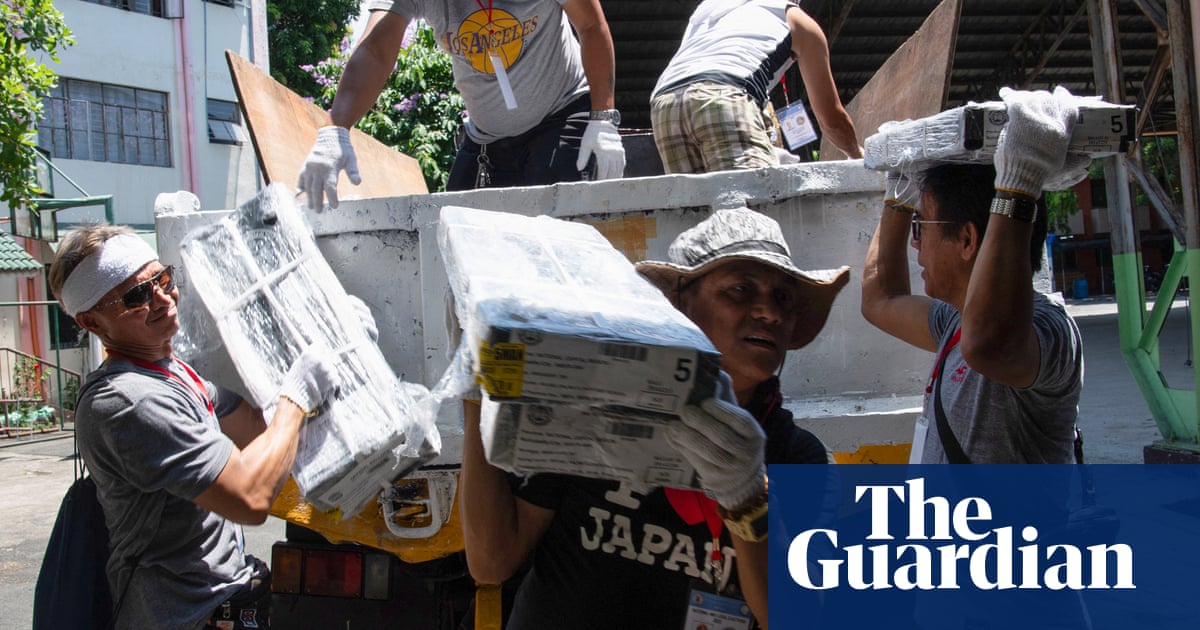Millions of Filipinos began voting on Monday in a midterm election widely seen as a referendum on the explosive feud between President Ferdinand Marcos and impeached vice-president Sara Duterte.
Workers in the capital, Manila, were busily setting up polling stations on Sunday for a race that will decide more than 18,000 posts, from seats in the House of Representatives to hotly contested municipal offices.
It is the Senate race, however, that carries potentially major implications for 2028’s presidential election.
The 12 senators elected on Monday will form half the jury in aDuterte impeachment trial– tentatively set for July – that could see her permanently barred from public office. In a speech at a rally last week, Duterte said her name, and her family’s name “have been dragged through the mud”. “Who will really benefit if the Duterte family is gone from this world? Not the Filipinos, not the victims of crime, the unemployed, the poor or even the hungry.”
Duterte’s long-simmering feud with former ally Marcos exploded in February when she was impeached by the House for alleged “high crimes” including corruption and an assassination plot against the president. She has denied the allegations, adding that she had presented the assassination plot as a hypothetical scenario.
Barely a month later, her father, former president Rodrigo Duterte, wasarrested and flown to the international criminal court(ICC) the same day to face a charge of crimes against humanity over his deadly anti-drugs campaign.
Sara Duterte will need nine votes in the 24-seat Senate to preserve any hope of a future presidential run.
Heading into Monday, seven of the candidates polling in the top 12 were endorsed by Marcos while four were aligned with his vice-president.
Two, including the president’s independent-minded sister Imee Marcos, were “adopted” as honorary members of the Duterte family’s PDP-Laban party on Saturday.
The move to add Imee Marcos and television personality Camille Villar to the party’s slate was intended to add “more allies to protect the vice-president against impeachment”, according to the resolution.
At her final rally in Manila on Thursday, Duterte invoked the spectre of “massive” electoral fraud and once again referred to her father’s transfer to the ICC as a “kidnapping”.
Despite his detention at The Hague, theelder Duterte remains on the ballotin his family’s southern stronghold of Davao city, where he is seeking to retake his former job as mayor.
At least one local poll is predicting he will win comfortably.
National police in the archipelago nation have been on alert for more than a week, and about 163,000 officers have been deployed to secure polling stations, escort election officials and guard checkpoints.
Thousands more personnel from the military, fire departments and other agencies have been mobilised to keep the peace in a country where battles over hotly contested provincial posts are known to erupt in violence.
A city council hopeful, a polling officer and a village chief are among the at least 16 people police say have been killed in attacks in the run-up to Monday’s election.
On Saturday, a candidate for municipal councillor was one of two men in an “armed group” killed in a shootout with police and the military in southern Mindanao island’s autonomous Muslim region, a notorious hotbed of election-related violence.
Farther north, a group of men were arrested the same day at the Cebu airport while transporting 441m pesos (nearly $8m) in cash, a crime under election rules aimed at preventing the exchange of bribes for votes.
Both cases were still under investigation.
